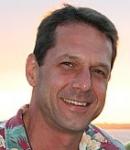Safeway Grows Paper Sustainability
Safeway is taking a step deeper into the forest and, thanks to its efforts, there's more forest to step into.
March 19, 2012
Safeway is taking a step deeper into the forest and, thanks to its efforts, there's more forest to step into. The retailerannounced that two of its private-label paper products is being certified as sustainable by the Forest Stewardship Council. Safeway's own Softly bath and facial tissue and Ultra Thirsty paper towels meet the criteria se forth by both the FSC and the Rainforest Alliance. The products extend the company's commitment to ustainable product offerings, which also include the certified Bright Green line of paper towels, bathroom tissue, napkins, and facial tissue that are made from 100% recycled paper and processed chlorine-free materials.
The announcement got us thinking about sustainability certification, and so we reached out to Brad Kahn, communications director at the FSC:
Q: When was the certification program introduced? What is its scope and what are its primary goals?
Brad Kahn: FSC was introduced in 1993, creating standards for responsible forest management. The goal is to protect forests for future generations.
Q: What factors should a retailer weigh in deciding to pursue certification of products?
Kahn: Increasingly, customers are asking where products come from and how they were made. Retailers who want to practice values related to their corporate citizenship, enhance their brands and manage risks connected to long supply chains should consider third-party, independent certification.
Increasingly, cities are considering bans on single-use plastic bags. In many cases, paper bags with recycled content are being offered as an alternative. In these cases, bags that are FSC-recycled are certified to include post-consumer recycled content, offering a credible alternative for retailers to consider.
Q: How does/can FSC actively assist in helping a company secure certification?
Kahn: The forest stewardship council sets standards by which companies are certified. Independent organizations called certifying bodies actually conduct the certifications to FSC standards.
FSC can help companies by providing rationale for certification, connecting them to others who have gone through the process already, offering technical assistance to answer questions and introducing certifying bodies who would conduct the audits.
FSC acts as a resource for companies, helping to connect supply of FSC-certified products with demand for those products. Our goal is to build a marketplace for responsible forest products.
Q: What resources (logo/seal, web link, etc.) are made available to retailers to promote their certified products?
Kahn: FSC just launched the FSC Marketplace, which is an important new resource for companies. It allows them to enter into a database all FSC-certified products they sell. People who are looking for certified products can search the database to find them.
When companies become certified, they receive a logo pack from their certifier. There are strict trademark guidelines, but within those lines the company can use the FSC logo to demonstrate their commitment to responsible forest management.
FSC also manages regional market campaigns designed to connect buyers and sellers of certified products. We currently have regional staff in the Southeast, Northwest and Lake states, and we plan to add people in California and New England soon.
Q: What kinds of paper products are most commonly submitted for certification?
Kahn: When it comes to paper, you can find an FSC-certified product of all kinds. There are literally hundreds of types of paper that are FSC-certified. Office paper is now easily available to consumers at all major supply stores, and paper companies of all sizes are offering FSC-certified paper for offset printing.
Packaging made from FSC-certified fiber is also widely available. Once you start looking for the FSC logo you will see it everywhere. For instance, all Kleenex brand tissues in the U.S. are now made from FSC-certified fiber.
Q: What kind of impact has the certification program had on preserving environmental resources? Are there any up-to-date statistics that would quantify your efforts?
Kahn: In the past 10 years, more than 100 million acres of forest have become FSC-certified in the U.S. and Canada. In these forests, habitat for endangered species is conserved, rare old growth is protected and the use of hazardous chemicals is prohibited, for example.
In addition, there are nearly 5,000 certified companies in the U.S. and Canada. These are businesses with a stake in the FSC Marketplace and collectively they are reaching millions of people.
Q: I notice that Safeway's products are also certified by the Rainforest Alliance. Is that separate from FSC's certification? What other organizations does FSC work with (if any) on certification-related matters?
Kahn: Rainforest Alliance runs the Smartwood program, which conducts FSC certifications, so FSC works closely with Rainforest Alliance. They also run other types of certification programs, tied to fair trade coffee, for example.
FSC works with a wide range of economic, social and environmental interests. Kimberly Clark, HP, the Home Depot, Greenpeace, Sierra Club, World Wildlife Fund, labor unions and indigenous groups are all part of FSC.
Q: Besides Safeway, what other retailers sell FSC-certified products? What kinds of products?
Kahn: There are hundreds of retailers selling FSC-certified products, including major chains. For example, Wal-Mart, Kroger, Whole Foods Market, Trader Joe’s, Target, the Home Depot, Staples, Office Depot, Sears and others all sell FSC-certified products or use FSC-certified products in their packaging, office paper or other forest product uses. Once you start looking for FSC, you will begin to see it frequently.
[Photo credit: Nick Perla]
About the Author
You May Also Like






